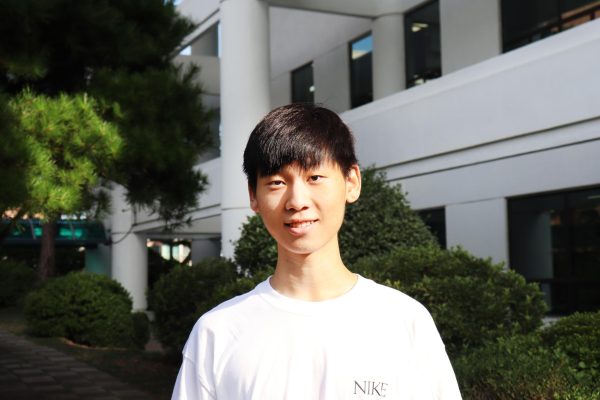Alumni perspectives: tool to combat student stress
During April, counselors are inviting SIS alumni to speak about their profession and education—a change that could help equip students with healthier mindsets by shedding light on the “bigger picture” of post-high school life.
Despite regular counselor meetings, many students struggle to manage their stress, for the root of their anxiety—a preoccupation with upcoming summatives and extracurricular commitments—still remains. Student stress often stems from their narrow-minded focus: viewing a prestigious college admission as the end of the race causes them to overemphasize each test and extracurricular activity.
Yes, scoring well on tests and acquiring executive positions for clubs are crucial for a solid college application. But when viewed from a broader perspective, one test score simply does not hold as much value as students may currently think. Yet many fail to understand “it’s just one test” and stress themselves out.
The counselors inviting SIS alumni speakers may combat this fundamental issue. While counselor mental well-being meetings offer students practical tools to manage their stress and anxiety, alumni invitations as an additional initiative would have several benefits.
Alumni can share with students their life stories and career successes, talking about their own experiences navigating college and career paths. This could help students understand there are multiple paths to success—it is not solely defined by grades and extracurricular accomplishments.
They could also convincingly instill that where one goes to college ultimately does not matter, for there are numerous reputable colleges. As first-hand experiencers of this, alumni can share their own college experiences to reassure students that wherever they end up, they can still be successful and have a great time.
Yet, bringing in alumni speakers could have potential challenges and drawbacks. For instance, it may be difficult to sustain the program in the long term due to limited means of contacting alumni. Still, counselors should continue to attempt to reach out to alumni even after April, considering the valuable insights they can offer.
Some may maintain that the presentations could be counterproductive. While students can learn from alumni and their diverse career paths, some worry that students may only focus on the most successful alumni and overlook those who took different paths, creating a similar problem to the bias towards brand-name colleges. This could lead students to believe that following a specific path or attending a prestigious university is the key to success—when in reality there are many different paths leading to fulfilling careers.
However, it is ultimately up to the students to take away important lessons from the presentations. While students may initially listen to speakers focusing on their university or career prestige, they may find the most value in their life stories—their diverse challenges and eventual success through perseverance. Students may also be interested in alumni with unconventional career paths, whose presentations can spark new passions and shed light on the variety of occupations.
By actively participating in alumni presentations, students can broaden their understanding of various career paths, draw inspiration for their own aspirations, and alleviate their stress by realizing that success can be achieved through different routes regardless of where one ends up.

Joseph is the senior design & production editor. He is a night person and often heavily relies on coffee. In his free time, he loves to watch LoL Champions...

